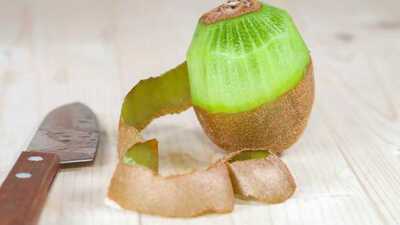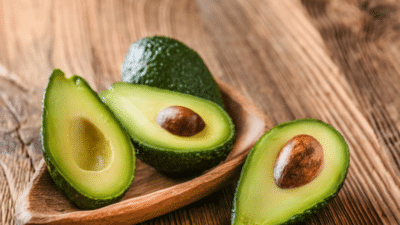Are you someone who avoids eating fruits altogether due to diabetes? Well, fruits are not your enemy, especially if you have diabetes. Being diagnosed with type 1, type 2, or gestational diabetes does not mean you should quit eating fruits. In fact, certain fruits can not only delight your taste buds, but also improve your condition. Eating fruits is part of a diabetes-healthy diet. Here is a list of four fruits that are good for you, even if you are diabetic.
Berries

When it comes to having fruits when you are diabetic, consider their glycemic index. Eating whole fruits with a low glycemic index (GI) can benefit you. And berries are an exceptional choice. Berries such as blueberries, raspberries, and strawberries have a low glycemic index. They are also high in fiber and antioxidants. A cup of berries provides 15-20 grams of carbs. A 2024 study found that berries can even reduce the risk of getting type 1 diabetes.
Video
Berries such as strawberries, blueberries, lingonberries, raspberries, blackcurrants, and other berries provide protection against T1D. The more berries a child ate, the less likely they were to develop T1D. “Berries are particularly rich in polyphenols, plant compounds which may dampen the inflammation that is associated with the development of type 1 diabetes,” Professor Virtanen of Finnish Institute for Health and Welfare, Helsinki, Finland, who led the research, said.
Kiwi

Kiwi is another diabetes-friendly option. It has a low to moderate glycemic index. Rich in fiber and nutrients like vitamin C and antioxidants, kiwi helps to stabilize blood sugar levels. The fiber in kiwi slows down sugar absorption, and hence is an ideal choice for managing diabetes. However, it is important to stick to one or two kiwis per serving to avoid excessive carb intake.
Apples

Yes, people who are diabetic can enjoy apples. This fruit has a low GI and is rich in fiber. Pectin, the soluble fiber in apples, helps to reduce blood sugar levels and improve gut health. It also has vitamin C and antioxidants. Consider eating an apple with the skin for more fiber content. This can slow down digestion and sugar absorption. However, consider sticking to one medium apple, as it contains about 25 grams of carbs.
Avocado

Avocados are a diabetes-friendly option. It has low carbohydrate content and a high healthy fat profile. The monounsaturated fats in avocado make it heart-healthy, and also improve insulin sensitivity and reduce blood sugar spikes. A recent study found that snacking on avocado at night may promote healthier triglyceride metabolism the next morning. “Our findings suggest that avocado’s unique nutrient package, its whole-food matrix, may further support heart health by encouraging healthier triglyceride metabolism. While the good fats and fiber in avocados already make them a satisfying snack, this research is making us think about how snacks before bed, something 84% of people consume regularly, can influence how the body handles food later,” Britt Burton-Freeman, study author and professor and chair of the Department of Food Science and Nutrition at Illinois Institute of Technology said.
Berries

When it comes to having fruits when you are diabetic, consider their glycemic index. Eating whole fruits with a low glycemic index (GI) can benefit you. And berries are an exceptional choice. Berries such as blueberries, raspberries, and strawberries have a low glycemic index. They are also high in fiber and antioxidants. A cup of berries provides 15-20 grams of carbs. A 2024 study found that berries can even reduce the risk of getting type 1 diabetes.
Video
Berries such as strawberries, blueberries, lingonberries, raspberries, blackcurrants, and other berries provide protection against T1D. The more berries a child ate, the less likely they were to develop T1D. “Berries are particularly rich in polyphenols, plant compounds which may dampen the inflammation that is associated with the development of type 1 diabetes,” Professor Virtanen of Finnish Institute for Health and Welfare, Helsinki, Finland, who led the research, said.
Kiwi
Kiwi is another diabetes-friendly option. It has a low to moderate glycemic index. Rich in fiber and nutrients like vitamin C and antioxidants, kiwi helps to stabilize blood sugar levels. The fiber in kiwi slows down sugar absorption, and hence is an ideal choice for managing diabetes. However, it is important to stick to one or two kiwis per serving to avoid excessive carb intake.
Apples

Yes, people who are diabetic can enjoy apples. This fruit has a low GI and is rich in fiber. Pectin, the soluble fiber in apples, helps to reduce blood sugar levels and improve gut health. It also has vitamin C and antioxidants. Consider eating an apple with the skin for more fiber content. This can slow down digestion and sugar absorption. However, consider sticking to one medium apple, as it contains about 25 grams of carbs.
Avocado
Avocados are a diabetes-friendly option. It has low carbohydrate content and a high healthy fat profile. The monounsaturated fats in avocado make it heart-healthy, and also improve insulin sensitivity and reduce blood sugar spikes. A recent study found that snacking on avocado at night may promote healthier triglyceride metabolism the next morning. “Our findings suggest that avocado’s unique nutrient package, its whole-food matrix, may further support heart health by encouraging healthier triglyceride metabolism. While the good fats and fiber in avocados already make them a satisfying snack, this research is making us think about how snacks before bed, something 84% of people consume regularly, can influence how the body handles food later,” Britt Burton-Freeman, study author and professor and chair of the Department of Food Science and Nutrition at Illinois Institute of Technology said.
You may also like

Jennifer Lopez suffers epic wardrobe malfunction on stage during birthday performance

Indian Startup IPO Tracker 2025

HC orders fresh look at hijack convict's early release plea

FPJ Impact: SRA Orders All 13 Sub-Departments To Submit RTI Data After SIC Misreporting In 18th Annual Report

Phil Collins' hospital dash and hospice rumours - what we know about his health






